#AgilePrinciples
Explore tagged Tumblr posts
Text
Agile Software Development: Principles, Patterns, and Practices" by Robert C. Martin is a foundational book that explores the key principles of Agile development, software design patterns, and best practices for writing clean, maintainable code. The book provides insights into how Agile methodologies enhance software development processes, enabling developers to create flexible, scalable, and high-quality software systems.
#Agile#SoftwareDevelopment#RobertCMartin#CleanCode#DesignPatterns#AgilePrinciples#SoftwareEngineering#AgileDevelopment#DevOps#SoftwareDesign#ProgrammingBestPractices#DevelopmentMethodologies#AgilePractices#SoftwareCraftsmanship#TestDrivenDevelopment#TDD#Refactoring#SoftwareArchitecture#CodingBestPractices#TechBooks#ContinuousImprovement#DevelopmentCulture#CodingSkills#AgileMethodology#ProgrammingBooks#SoftwareQuality
0 notes
Text
In product development, businesses need to balance speed, quality, and innovation. The Agile methodology, combined with the concept of the Minimum Viable Product (MVP), offers a powerful framework for achieving this balance. By focusing on creating a product with just enough features to address core customer needs, teams can test ideas, gather feedback, and iterate quickly. Let’s dive into what Agile MVP means and how it can drive success in your projects.
#AgileMVP#ProductDevelopment#LeanStartup#AgileMethodology#Innovation#MinimumViableProduct#UserFeedback#IterativeDevelopment#ProductManagement#AgilePrinciples#StartupSuccess#ContinuousImprovement#BusinessGrowth#CustomerCentricity#RapidPrototyping
0 notes
Text
Embrace true agility by letting go of rigid plans and focusing on vision, humility, and continuous learning. Is your company truly agile or just following a fixed plan?

Want to stick to your project plan? Then agile methods might not be for you. 🤔
Agility is all about embracing change. If change drives your costs, you need to be as agile as possible. But are we truly prepared for change?
Can we handle scrapping our project plan? Can we accept being wrong? Can we cope with not delivering all the features we originally planned?
Why do so many companies spend enormous amounts of time and money to "become agile" when:
🤨 They never adapt their plan during a Sprint Review or System Demo? 🤨 They don’t listen to feedback, but just "demo the current project state"? 🤨 They stick rigidly to their plan without embracing the agile mindset?
If you really want to embrace agility, let go of the fixed upfront project plan. Instead, focus on:
👉 A clear vision and product goal, not detailed features 👉 Humility about your ideas, knowing you’ll often be wrong 👉 A passion for learning and gathering feedback to refine your plan
Does your company rigidly follow a fixed plan and try to "implement it agile"?
#Vabro#Scrum#AgileMindset#ProjectManagement#EmbraceChange#AgileTransformation#SprintReview#SystemDemo#ProjectPlanning#FeedbackLoop#ContinuousImprovement#AgileJourney#BusinessAgility#ProductGoals#LearnAndAdapt#AgilePrinciples#FlexiblePlanning#AgileImplementation
0 notes
Text
Benefits of Agile Transformation: Why Your Business Needs It
Agile Transformation has become increasingly essential for businesses striving to thrive in today's dynamic and competitive market. In an era of rapid technological advancements and shifting consumer preferences, organizations need to be agile and adaptive to stay ahead of the curve. Agile Transformation offers a strategic approach to achieving this agility, allowing businesses to embrace change, innovate, and deliver value to their customers more effectively.
Improved Flexibility and Adaptability
One of the primary benefits of Agile Transformation is improved flexibility and adaptability. Traditional business models often struggle to keep pace with the fast-evolving market dynamics, leading to missed opportunities and stagnation. Agile methodologies, on the other hand, emphasize iterative development and continuous feedback, enabling businesses to respond quickly to changes in the market. By breaking down complex projects into smaller, more manageable increments, Agile Transformation empowers teams to adapt their plans and priorities in real-time, ensuring that they stay aligned with business objectives.
Enhanced Collaboration and Communication
Agile Transformation also fosters enhanced collaboration and communication within organizations. Traditional hierarchical structures can hinder communication and collaboration, leading to silos and inefficiencies. Agile methodologies promote cross-functional teams and open communication channels, facilitating collaboration among team members from different departments and disciplines. By encouraging transparency and teamwork, Agile Transformation enables organizations to leverage the collective expertise of their workforce and drive innovation.
Increased Efficiency and Productivity
Another significant benefit of Agile Transformation is increased efficiency and productivity. Agile methodologies focus on delivering value to customers through iterative development and continuous improvement. By prioritizing the most valuable features and delivering them incrementally, Agile Transformation minimizes waste and maximizes the return on investment. Moreover, Agile practices such as daily stand-up meetings and sprint reviews help teams stay focused and motivated, leading to higher productivity levels and faster time-to-market.
Better Customer Satisfaction
Agile Transformation places a strong emphasis on customer satisfaction and value delivery. By involving customers early and often in the development process, Agile methodologies ensure that products and services meet their needs and expectations. Continuous feedback loops enable businesses to gather valuable insights from customers and make necessary adjustments to their offerings quickly. As a result, Agile Transformation not only enhances customer satisfaction but also builds trust and loyalty, driving long-term business success.
Competitive Advantage
In the current highly competitive business environment, securing a competitive edge is vital for survival. Agile Transformation enables businesses to stay ahead of the competition by fostering innovation and adaptability. By embracing change and embracing a culture of continuous improvement, Agile organizations can innovate faster, respond to market trends more effectively, and seize new opportunities ahead of their competitors. In a world where disruption is the norm, Agile Transformation is a strategic imperative for businesses looking to maintain their relevance and leadership position.
Cost Reduction and Risk Management
Finally, Agile Transformation helps businesses reduce costs and manage risks more effectively. Traditional project management approaches often suffer from budget overruns and missed deadlines due to scope creep and unforeseen obstacles. Agile methodologies mitigate these risks by breaking down projects into smaller, manageable iterations and delivering value incrementally. This iterative approach allows businesses to identify and address risks early in the development process, minimizing the impact on project timelines and budgets. Additionally, Agile Transformation promotes a culture of experimentation and learning, enabling businesses to innovate with confidence and minimize the fear of failure.
Conclusion In conclusion, Agile Transformation offers an uncountable number of benefits for businesses seeking to thrive in today's fast-paced and competitive environment. From improved flexibility and adaptability to enhanced collaboration and communication, Agile methodologies empower organizations to innovate, deliver value to customers, and gain a competitive edge. By embracing Agile Transformation, businesses can increase efficiency, reduce costs, and manage risks more effectively, ultimately driving long-term growth and success.
#transformation#agile#agilemethodologies#agilepractices#agileframework#scrum#kanban#lean#agileadoption#agileinformation#agileculture#agilemindset#agileprinciples#agileteams#agileleadership
0 notes
Text
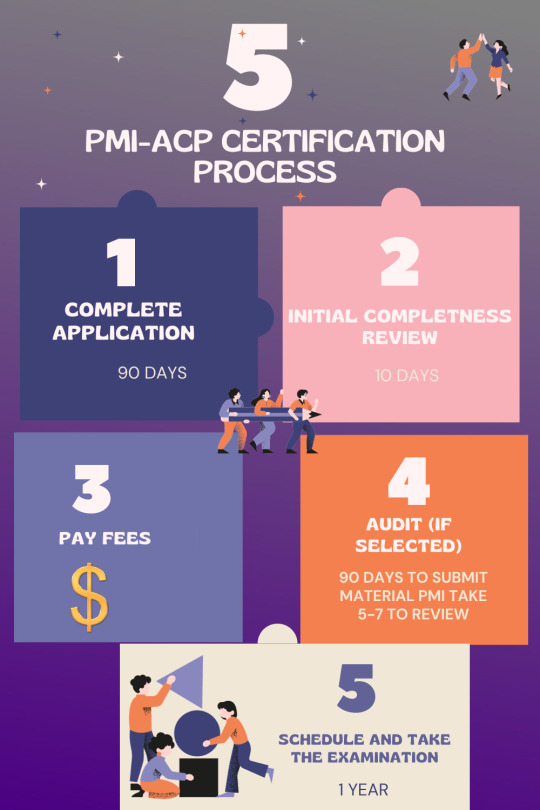
PMI Agile Certified Practitioner (PMI-ACP) is PMI’s fastest growing certification that has already surpassed other PMI certifications. If you are planning for PMI-ACP ® Certification, you have to go through 5 steps process starting from the time you submit your application to sit in the exam Read full article here:
#PMIACP#AgileCertification#AgileProjectManagement#PMI#CertificationJourney#ProjectManagement#AgilePrinciples
0 notes
Text
Unlocking Success: Key Principles of Agile Project Management 🚀
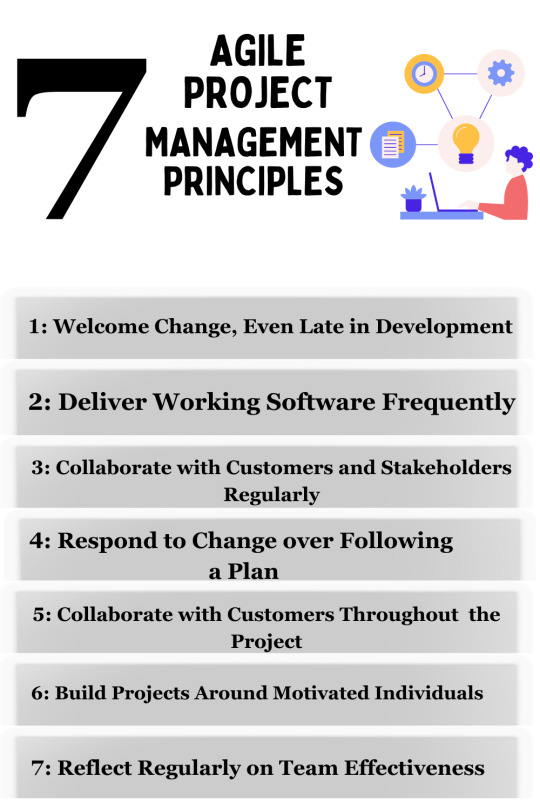
https://sites.google.com/view/httpssharmaashi332/home
Dive into the transformative world of Agile Project Management! 🌐✨ Explore the key principles that drive success in Agile methodologies, from embracing change to fostering collaboration. Elevate your project management game with these essential insights! 🚀
0 notes
Text
🚀 6 Nguyên Tắc Agile: Áp Dụng Cho Mọi Thứ
Chào mừng cả nhà đến với học viện Agile! 🔍 Trong bài viết mới nhất trên trang web của chúng tôi, chúng ta sẽ cùng nhau đào sâu vào 6 Nguyên Tắc Agile và cách áp dụng chúng vào mọi lĩnh vực trong cuộc sống và công việc.
🤓 Học Tập Cùng Chuyên Gia:
Tìm hiểu từ những người có kinh nghiệm thực tế, chia sẻ kiến thức và kỹ năng áp dụng Agile từ những người đã thành công trong sự nghiệp của họ.
🌐 Mọi Lĩnh Vực Đều Áp Dụng:
Không chỉ dành cho lĩnh vực phần mềm, Agile có thể được tích hợp vào mọi ngóc ngách, từ quản lý dự án đến phát triển cá nhân và quản lý thời gian.
💼 Áp Dụng Ngay:
Hãy khám phá cách ứng dụng những nguyên tắc Agile ngay trong công việc hàng ngày của bạn để tối ưu hóa hiệu suất và đạt được mục tiêu.
🚨 Khám Phá Ngay Tại https://hocvienagile.com/6-nguyen-tac-agile-ap-dung-cho-moi-thu/
Đừng bỏ lỡ cơ hội học hỏi và cải thiện bản thân! 🚀
#Agile #HocVienAgile #NangCaoKienThuc #PhatTrienBanThan #ProjectManagement #AgilePrinciples
0 notes
Photo
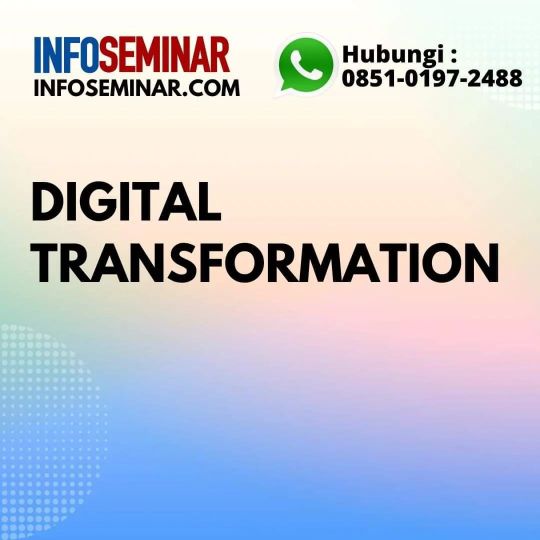
Jadwal Training Digital Transformation. Program Digital Transformation ini adalah titik awal bagi siapa saja yang terlibat dalam transformasi digital. Program ini akan menginspirasi Anda untuk memimpin dan mendukung Transformasi Digital. Program ini dirancang khusus untuk siapa saja yang terlibat dalam proyek transformasi digital yang tidak yakin harus mulai dari mana atau apa yang harus dilakukan selanjutnya. Program ini cocok untuk para profesional di semua tingkatan. Info Pelatihan Digital Transformation: https://www.informasi-seminar.com/digital-transformation/ Info seminar training lengkap: WA: 0851-0197-2488 Jadwal training lengkap: https://www.informasi-seminar.com #digital #digitaltransformation #technology #agilemindset #agilevalue #agileprinciples #kreatif #inovasi #bisnis #transformasi #leadership #agile #business #infoseminar #jadwaltraining #inspirasi #leader #customeranalytics #learning (di Green Sedayu Mall) https://www.instagram.com/p/CkAbwcxJr58/?igshid=NGJjMDIxMWI=
#digital#digitaltransformation#technology#agilemindset#agilevalue#agileprinciples#kreatif#inovasi#bisnis#transformasi#leadership#agile#business#infoseminar#jadwaltraining#inspirasi#leader#customeranalytics#learning
0 notes
Photo

What is Agile 2? Agile Worlds News Better English S03 E12 Agile World Better English discusses Agile 2 with authors Lisa Cooney and Philippa Fewell. Come get your burning questions answered. What is Agile 2? How has agile evolved over the past 20 years? Why should is Agile 2 important? Will Cynthia Kahn and Steve Moubray stop giggling at each other? Lisa Cooney is a co-founder at Agile 2 Academy serves as a leader, author, and speaker in the worldwide Agile community. She is co-author of Agile 2: The Next Iteration of Agile (2021) and editor of Evolvagility: Growing an Agile Leadership Culture From the Inside Out by Michael Hamman (2019). She has a Bachelor’s degree in Philosophy and a Master's Degree in Education, a variety of agile www.agile-world.news #AgileWorld #AgileTalkShow #Agile https://agile-world.news/what-is-agile-2-agile-worlds-news-answers-your-questions-s03-e12/?utm_source=tumblr&utm_medium=Agile+World&utm_campaign=Agile+World
#cynthiakahn#agile#stevemoubray#agileprinciples#agilemanifesto#agileworld#agilepodcast#agiletransformation#agileevolution#philippafewell#lisacooney
0 notes
Photo
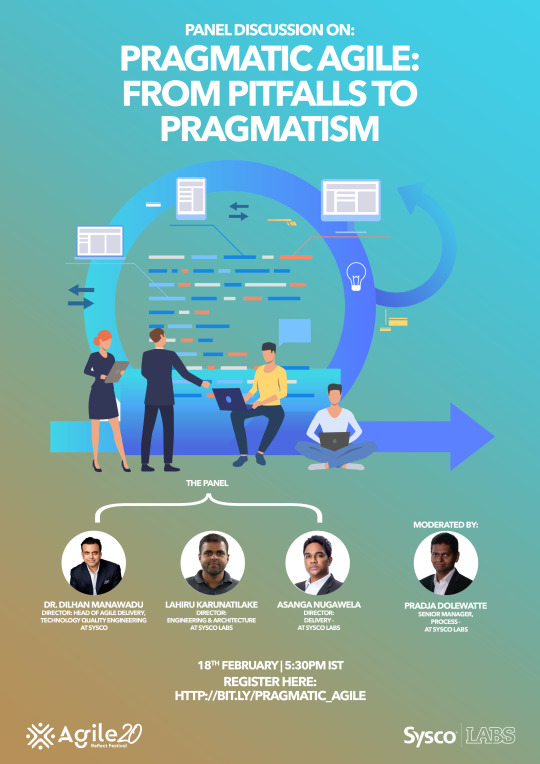
Pragmatic Agile, from pitfalls to pragmatism There are many pitfalls in agile. You may have heard people say things like "Agile doesn't work" or "for Agile to work you need these things in place View https://agile20reflect.org/event/pragmatic-agile-from-pitfalls-to-pragmatism/?utm_source=tumblr&utm_medium=Agile20Reflect+Festival&utm_campaign=Agile20Reflect+Festival
0 notes
Photo

Certification Planner, LLC invites you to a free webinar on "PMI-ACP® Certification: Invaluable or Impractical?". Explore the Agile attitude with Lead Instructor Jeremy Kenedy.
Register at: bit.ly/Webinar-by-CP
#Webinar#freewebinar#Projectmanagement#pmiacp#Agileprinciples#PMIACPtraining#PMIACPexam#projectmanagementcertification#PMIACPcertification#Certificationplanner#traininganddevelopment#Training#projectmanagementtraining
0 notes
Text
Agile has revolutionized the way teams develop software and manage projects, offering a flexible, iterative approach that prioritizes customer collaboration, adaptability, and rapid delivery. Whether you’re new to Agile or need a refresher, this Agile cheat sheet breaks down the core concepts, principles, and tools that can help you master the framework and apply it to your projects.
#Agile#Scrum#Kanban#ProjectManagement#AgilePrinciples#Sprints#UserStories#ProductBacklog#AgileTeams#ContinuousImprovement#BurndownChart#AgileFrameworks#Collaboration#IterativeDevelopment#SprintPlanning#DailyStandup#AgileWorkflow#SoftwareDevelopment#AgileManifesto#TeamProductivity
0 notes
Text
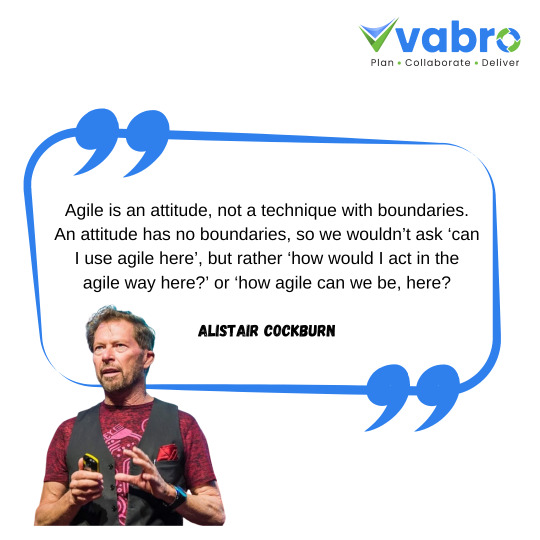
Think beyond boundaries with Vabro’s Agile solutions. Get Started with Vabro @ www.vabro.com
#Vabro#Agile#AgileMindset#AgileLeadership#ProjectManagement#TeamCollaboration#ContinuousImprovement#AlistairCockburn#AgilePrinciples#AgileDevelopment#WorkplaceCulture#scrumstudy
1 note
·
View note
Photo

Agile = transparency inspection adaption
#transparency#agileprinciples#framework#methods#process#quality#agiletesting#performance#operation#continousintegration#CI#continousdeploy#CD#devops#security#importantthings
0 notes
Text
Navigating the Agile Seas: A Comprehensive Guide to the PMI Agile Certified Practitioner (PMI-ACP) Certification
Introduction:
Agility has become a crucial difference for firms attempting to remain competitive in today's dynamic and fast shifting business world. While traditional project management systems struggle to keep up with the rate of change, the Agile methodology has emerged as a revolutionary force, allowing teams to adapt and produce value more effectively. The Project Management Institute (PMI) recognizes the importance of Agile practices and offers the PMI Agile Certified Practitioner (PMI-ACP) certification to professionals who want to learn Agile principles and methodologies. In this extensive blog, we will go into the PMI-ACP certification, investigating its essential components, benefits, and how it can help you further your career in Agile project management.
Understanding the PMI-ACP Certification:
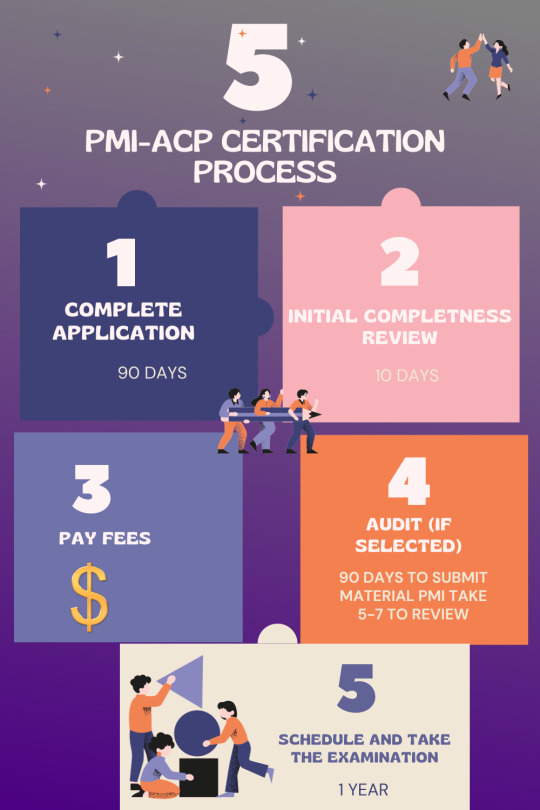
Overview of Agile Methodology:
Agile methodology is a collaborative, adaptable, and customer-focused approach to project management and software development that is fluid and iterative. Agile was first established in the software development industry, but it has now spread to other industries such as marketing, finance, healthcare, and others. Agile's primary purpose is to create high-quality goods or services that fulfill the expectations of customers through a succession of modest, incremental releases.
Key Principles of Agile:
Welcome Changes in Requirements:
Customer Satisfaction through Continuous Delivery:
Welcome Changes in Requirements:
Embracing Iterative Development:
Self-Organizing Cross-Functional Teams:
Frequent Collaboration and Communication:
Regular Reflection and Adaptation:
The PMI-ACP Certification:
The Project Management Institute (PMI) Agile Certified Practitioner (PMI-ACP) certification is a worldwide recognized credential that confirms a professional's proficiency in Agile concepts and practices. The qualification is intended for project managers who work in or want to work in Agile contexts. It recognizes the importance of
Agile approaches in project management, as well as the requirement for practitioners to demonstrate expertise in the use of Agile principles and technologies.
Exam Domains and Topics:
The PMI-ACP exam is divided into six categories, each of which assesses a candidate's knowledge and implementation of Agile principles, practices, and tools. It is critical to understand these domains and topics in order to prepare for exams effectively. The following is a breakdown of the PMI-ACP test domains and topics:
1. Agile Principles and Mindset:-
Topics:
Understanding Agile Manifesto values and principles.
Applying Agile mindset and thinking.
Recognizing and valuing customer and stakeholder feedback.
2. Value-Driven Delivery:-
Topics:
Prioritizing features and functionality based on business value.
Validating value assumptions and hypotheses.
Minimizing time to market while maintaining high quality.
3. Stakeholder Engagement:-
Topics:
Communicating effectively with stakeholders.
Facilitating collaboration and engagement among team members and stakeholders.
Building trust and managing expectations.
4. Team Performance:-
Topics:
Forming and supporting Agile teams.
Empowering and motivating teams.
Fostering a culture of collaboration and continuous improvement.
5. Adaptive Planning:-
Topics:
Creating and maintaining a lightweight, flexible project plan.
Incorporating change into the planning process.
Balancing predictability and adaptability.
6. Problem Detection and Resolution:-
Topics:
Identifying and addressing impediments, obstacles, and dependencies.
Employing problem-solving strategies.
Continuously improving through feedback and lessons learned.
Benefits of PMI-ACP Certification:
Professionals wishing to develop their careers in Agile project management can benefit from earning the PMI Agile Certified Practitioner (PMI-ACP) credential. Here are some significant benefits:
1. Agile Knowledge and Skills Validation: PMI-ACP certification validates an individual's grasp and implementation of Agile principles and practices. It displays a dedication to Agile project management excellence.
2. Global Recognition: As a globally recognized credential, PMI-ACP confers international respect on professionals. PMI certifications are recognized by employers globally, making it a great asset for people working in various global situations.
3. Increased Professional Credibility: A PMI-ACP certification increases professional credibility and reputation. It denotes a drive to staying current with industry best practices and to ongoing learning.
4. Opportunities for Professional Advancement:
The PMI-ACP certification opens up a variety of professional growth prospects in Agile project management. Certified practitioners are frequently in demand for positions of leadership, such as Agile Project Manager, Scrum Master, or Agile Coach.
5. Industry-Wide Versatility:
The PMI-ACP principles and practices are relevant across multiple industries. Agile certified professionals can contribute to initiatives in IT, healthcare, finance, manufacturing, and other fields.
Conclusion:
Earning the PMI-ACP certification is a wise career investment. It not only confirms expertise in Agile techniques, but it also gives you a competitive
advantage in a continuously changing work market. As more organizations adopt Agile concepts, PMI-ACP certification positions individuals to play a critical role in driving successful Agile projects and leading teams to create value efficiently and effectively.
#PMIACP#AgileCertification#AgileProjectManagement#PMI#CertificationJourney#ProjectManagement#AgilePrinciples
0 notes
Photo

A Quick Insight into Agile Methodologies, their benefits & principles. Read More : http://bit.ly/2kRrNoi
0 notes